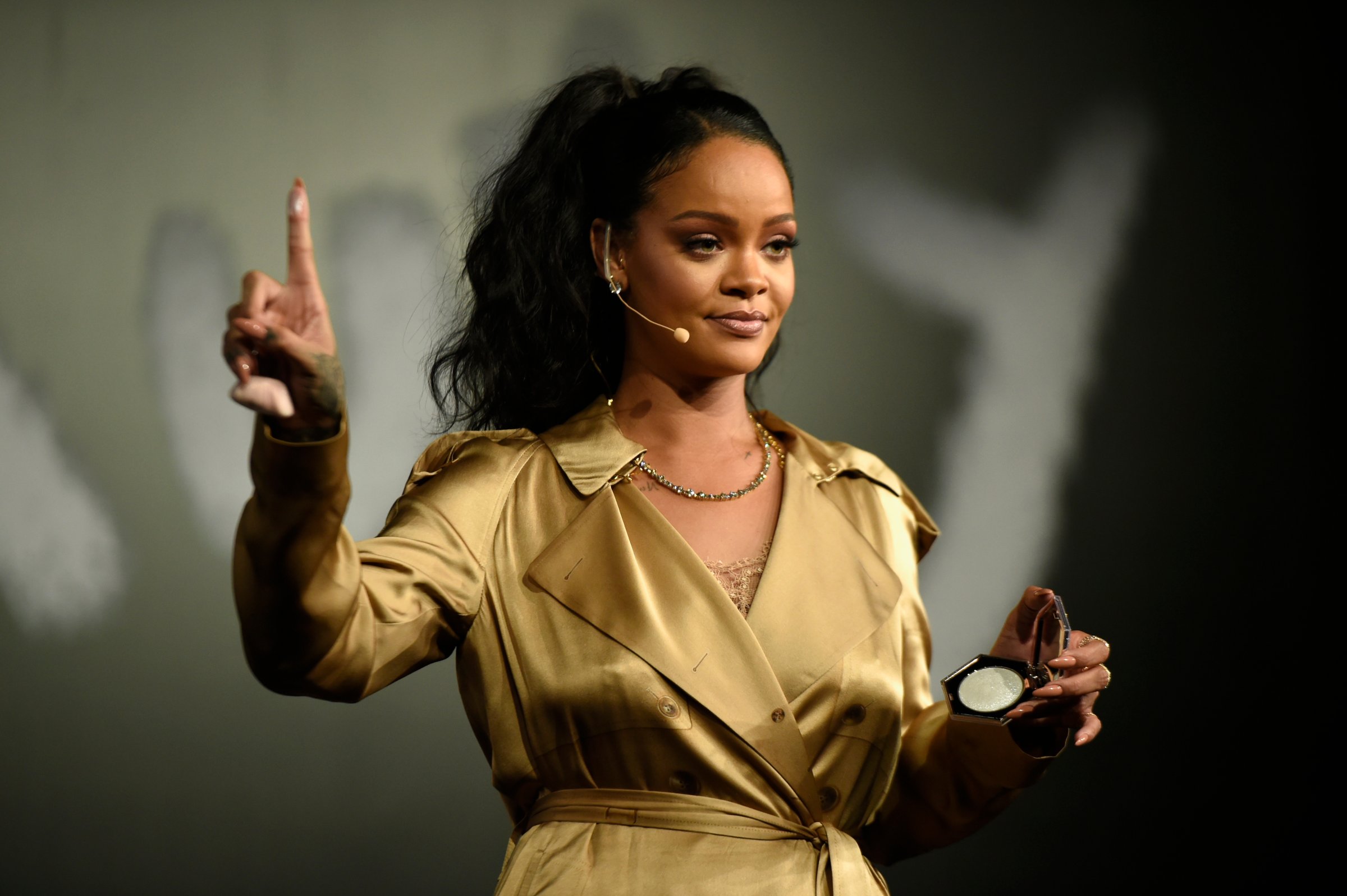
After getting a tip-off that her music was being played at a Trump-associated rally in Chattanooga, Tennessee, over the weekend, Rihanna had a strong response: “Not for much longer.”
But what’s her legal recourse if she would like to ensure that her songs aren’t blasted from loudspeakers everywhere, no matter her preference of the crowd’s political affiliation? Music attorneys Cassandra Spangler and Marc Ostrow spoke to TIME about the music and beauty mogul‘s options. It’s not that simple.
“If Donald Trump has not secured the appropriate licenses, his use of Rihanna’s music may be in violation of copyright laws. It may also be in violation of Rihanna’s trademark rights and right of publicity,” Spangler said. But sometimes, voicing opposition can be enough.
“Usually what happens, and there’s a long list of artists objecting to Trump using their music, is that after the artist makes his or her position objecting to the usage, the political figure voluntarily ceases to use the song,” Ostrow says.
The first question is copyright law: candidates need to get certain legal clearances before using an artist’s song at political events or in advertisements, specifically a public performance license. That process is generally handled through organizations like ASCAP or BMI, known as performing rights organization or PROs. (They act as middlemen between the party that wants the music and the party that made it, managing the licensing and collecting royalties.)
“While most venues have blanket licenses from these PROs, the blanket licenses usually exclude conventions and rallies,” Spangler says. If the rally’s organizing team at the University of Tennessee at Chattanooga’s McKenzie Arena didn’t check their terms, then they may be infringing on copyright.
It’s unclear what McKenzie Arena’s deals are, but Rihanna’s options will be limited based on her contract with BMI, which is where the 2007 hit “Don’t Stop the Music” — the song that played at the rally in question — is licensed. “It will depend on whether BMI has issued a public performance license to Trump or whether they are willing to refuse to do so at Rihanna’s request,” Spangler adds.
Rihanna could always choose to withdraw the song from the BMI catalogue entirely — but, says Ostrow, that would be a “drastic measure,” and she’d cut herself off from most of the song’s future revenue potential, from radio airplay to streaming to licensed public performances.
Then there are trademark laws or rights of publicity. While these laws vary by state, if the music is used in a way that suggests an endorsement of the candidate by the artist, it could be considered a violation of trademark. “As not just an artist but a businesswoman, Rihanna has a number of different trademark registrations, which may give her a case to claim trademark infringement or ‘false endorsement’ as well,” Spangler says. (Aside from her music, Rihanna is the founder of beauty and lingerie brands, plus a philanthropic organization.)
And Rihanna’s response makes it clear she is not intending on endorsing the candidate in question. If Trump had encouraged the crowd to sing or clap along, for instance, that would be a clearer case for violation of rights of publicity, suggests Ostrow. But he didn’t.
Rihanna follows in the footsteps of artists including Pharrell, Aerosmith, Adele, the Rolling Stones, Queen and the estate of Prince, who have also requested that their work be excluded from events. Pharrell sent out a cease and desist letter claiming copyright violation just last week after Trump played “Happy” at a rally, while Aerosmith frontman Steven Tyler also sent out a cease and desist letter to the White House over the summer claiming violation of privacy and trademark rights for broadcasting his songs.
But as the Stones’s Mick Jagger well knows, there isn’t always much the artist can do, thanks to those licensing deals.
“If you’re in a public place like Madison Square Garden or a theater, you can play any music you want, and you can’t be stopped,” he complained two years ago after Trump used his music as a de facto campaign theme song, despite Jagger’s vocal opposition. “They can play what they want.”
More Must-Reads from TIME
- Donald Trump Is TIME's 2024 Person of the Year
- Why We Chose Trump as Person of the Year
- Is Intermittent Fasting Good or Bad for You?
- The 100 Must-Read Books of 2024
- The 20 Best Christmas TV Episodes
- Column: If Optimism Feels Ridiculous Now, Try Hope
- The Future of Climate Action Is Trade Policy
- Merle Bombardieri Is Helping People Make the Baby Decision
Write to Raisa Bruner at raisa.bruner@time.com